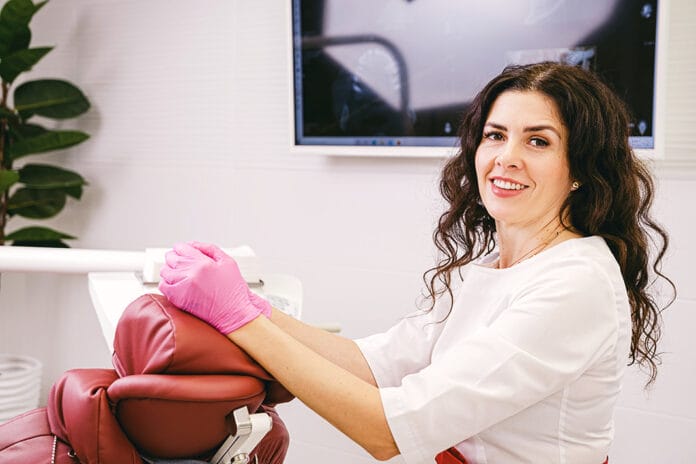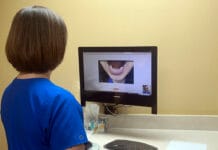Ah, January ‒ the beginning of a brand-new year. The new year brings a sense of hope, purpose, and possibilities for people, a fresh start. The previous year is behind us, and whatever mistakes dental hygienists have made or tasks they didn’t accomplish or even attempt is history now. In January, resolutions have been made, new diets and workout routines start, and many dental hygienists begin working on improving their lives, relationships, and personal character.
Great! I applaud the effort and accomplishments that are sure to follow when we all commit and stay diligent to our purpose. I am all for self-improvement methods and an advocate for educating ourselves in our personal and professional lives in whatever subjects we deem important and being the best version of ourselves we can be.
The Authentic Dental Clinician
With that being said, I believe there is great solace that can be taken in being your most “authentic self” in your day-to-day life, as well as in relation to the dental profession. I’m sure some of you are saying, “What is she talking about? I’m always myself at work.” Yes, we can’t be someone else, so obviously, we are ourselves when we are in the office and treating patients.
What I’m speaking of, though, is being the authentic clinician you are most comfortable being. Like most of us, I have a professional self and a personal self, and they do cross paths as it is hard to separate yourself completely from a job. I try my very best to always be nice and courteous, caring and sympathetic when needed and I will joke with the patients who enjoy that.
But make no mistake about it; it’s all done while maintaining the professional role of a dental hygienist. I feel patients come to us and are in our care to educate and treat them, not find their best buddy. So I do my very best to take care of their oral health needs and be a good human to them at the same time.
The Danger of Following a Script
During my 30-year career, I have seen the role of dental hygienists evolve greatly. Not only do we still take care of the patient’s clinical needs and educate them in our dental hygiene role, but we also may act as a treatment coordinator, assist the patient with scheduling needs, and explain insurance benefits and financial obligations to our patients. I have been associated with some offices that wanted a script to be followed when introducing a patient into the office and giving a tour, answering the phone, scheduling appointments, or discussing insurance.
This script even crept over into discussions with patients regarding periodontal disease, treatment needs, oral hygiene instructions, etc. While I truly understand the importance of using certain verbiage when speaking with patients, all too often, it can feel foreign and awkward for the clinician and ultimately comes across as such.
As educated and licensed professionals, we all have the knowledge to be able to explain to our patients what is going on with their oral health, any concerns that we see, and treatment that has been diagnosed and needed. Rely on your education and experience when having that conversation. You know what has caused certain conditions and how to improve them.
If you are asked to follow certain guidelines where you work, do so, but make it your own words. In other words, be authentic in your delivery.
Honesty is the Best Policy
This goes without saying, right? With all the changes in dentistry, there may be some procedures or products that you are unfamiliar with. That’s OK! If you are asked a question that you do not know the answer to, by either a patient or co-worker, just say that. There have been times when a patient has stumped me with a question, and I have told them I did not know the answer. But I would find out either by asking the treating dentist or by doing research. That has come up most recently with questions in regard to COVID-19. I’d rather not answer a question than answer it incorrectly, and patients also appreciate that.
I have had the opportunity to move around the country and live in several different states throughout my life. So I am not a “local” in any of the offices that I work with. Patients are obviously curious about who is treating them, especially if you are a new provider they have not seen before. They will want to know all about you. Be open, don’t try to come off as a “local” if you aren’t one. Share with your patients, trade stories, and build rapport with them. I have learned a lot about new areas and history from discussions with my patients.
Rely on the Reliable Dental Products
Great improvements have been made in the dental profession over the years, and new treatment modalities have been introduced, as well as new products, instruments, and medicaments. While some of these are wonderful products and have improved how I provide care to my patients, I would warn you against jumping on the train of all the newest, latest, and greatest things that may be available to us as clinicians.
Yes, by all means, try them out; however, do your research and even take personal inventory when you use such things. Give them value as to how well they worked, ease of use, time involved to deliver treatment, and overall patient satisfaction. Build your own repertoire of things you believe in and enjoy using due to the results you have seen personally.
Some great new products are out there. Medicaments that help in the fight against periodontal disease come to mind. But I am always glad to suggest a tried-and-true method to patients that I have seen used and have proven to be successful in my own years of clinical practice.
Something as simple as adding brushing with baking soda to a patient’s home-care routine a couple of times a week really helps with stain buildup. Another suggestion I make is tying a knot in floss in an open contact area. Water flossers are great, but mechanical flossing in an open space tends to yield better results. Some new prophy paste may advertise as “stain removers,” but time and time again, I will go back to flour pumice and hydrogen peroxide for my heavily stained patients because I know it works.
Above all else, just be you. Be authentic in your speech, mannerisms, and delivery of needed information to your patients. Be authentic in your suggestions of how to achieve the desired goal for your patients. Your patients will appreciate the true version of yourself, your education, and your clinical assessment and recommendations in regard to their oral health needs. In the words of Dr. Seuss, “Today you are you! That is truer than true! There is no one alive who is you-er than you!”
You’ve got this: 2022 is a great year to be a great you!












